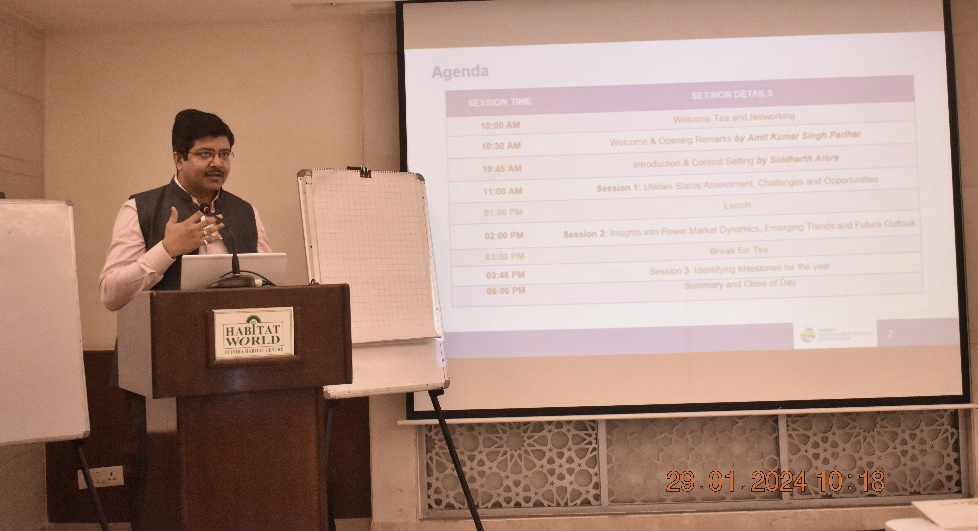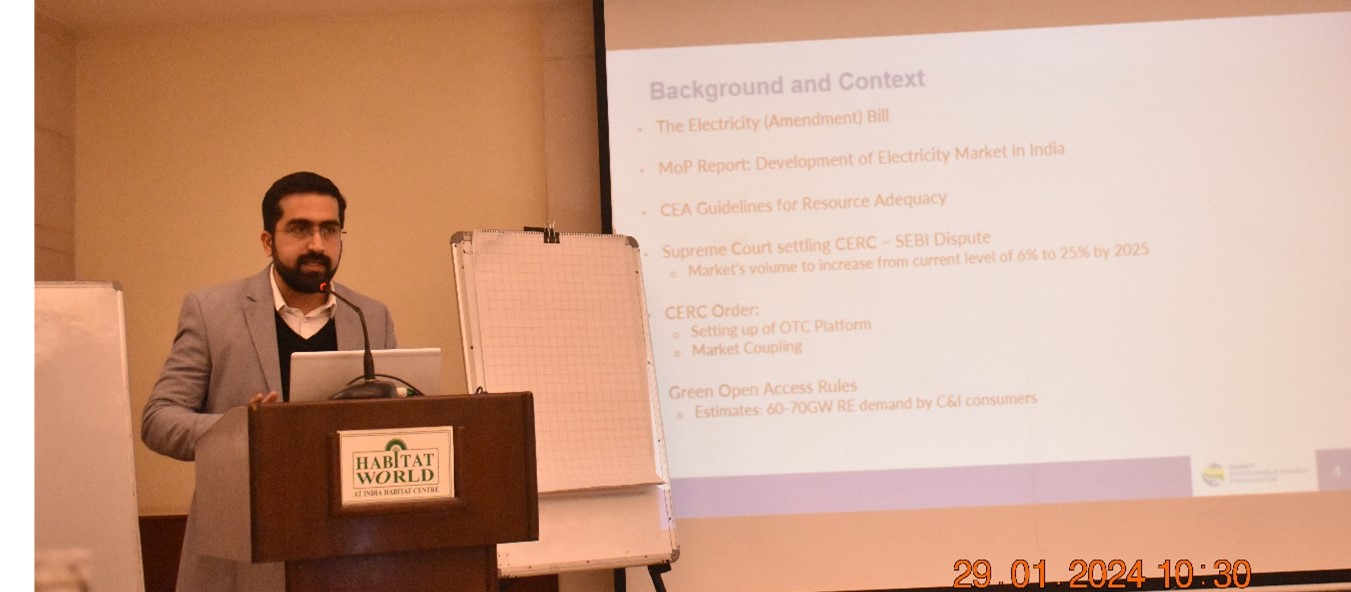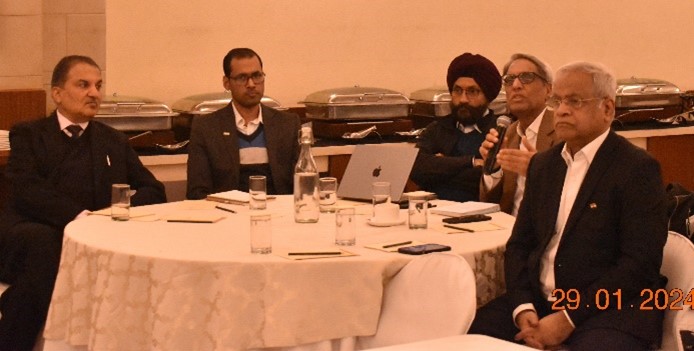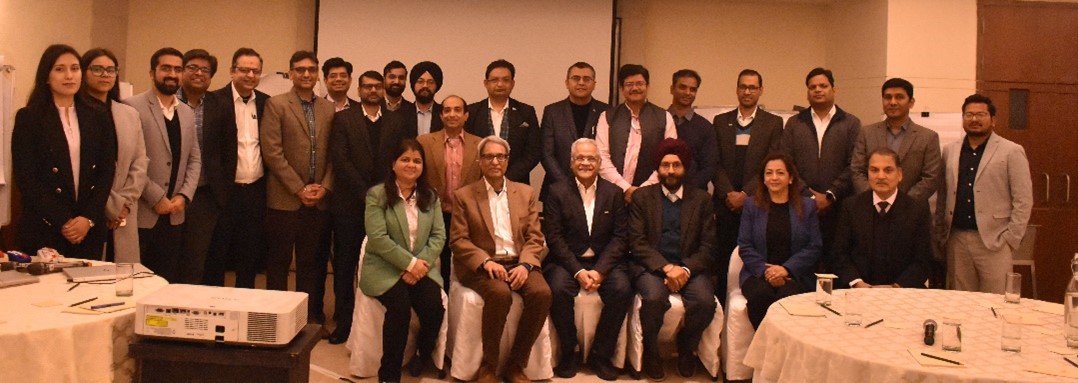The Clean Power team of Shakti Sustainable Energy Foundation organised it’s second Workplan Workshop on January 29, 2024, at India Habitat Centre. The workshop was focused around ‘Utilities and Power Market Reforms.’ The workshop was attended by a diverse array of representatives including those from CSO Partner organisations, academia, Discom, Power Exchange, industry experts, and consulting partners, the session aimed to delve into strategies and initiatives geared towards enhancing the financial health of Discoms, increasing liquidity in power exchanges, and improving accessibility to clean power solutions.

During the workshop, participants engaged in in-depth discussions exploring innovative approaches, policy frameworks, and collaborative efforts to address challenges within the power sector. The event fostered a comprehensive dialogue, highlighting the importance of collaboration among different sectors for advancing clean and sustainable power solutions.

Reflecting on the historical context, the session contextualised the evolution of power market reforms in India, tracing back to the pre-reform era characterised by state-controlled frameworks. It emphasised pivotal moments such as the introduction of the Electricity Act in 2003, which led to significant restructuring within the sector, paving the way for a more dynamic and market-oriented landscape.
The current state of the power sector was also scrutinised, with a focus on key performance indicators such as capacity addition, distribution efficiency, and the integration of renewable energy sources. Despite substantial progress, challenges persist, particularly in distribution efficiency and the financial health of distribution companies (DISCOMs).
The event didn’t just dwell on the challenges but also explored potential solutions and ongoing support initiatives by Shakti Sustainable Energy Foundation. These measures, ranging from designing time-of-use tariffs to developing methodologies for calculating wheeling charges, are aimed at enhancing the efficiency of the sector and integrating a higher share of renewable energy into the grid.
Furthermore, the expert/stakeholder consultation sought to draw linkages between efficient and competitive electricity markets, understand regulatory challenges, improve financial health of utilities, and develop pathways for higher renewable energy integration. The points encompassed various aspects including policy and regulatory environment, technological innovation, transmission infrastructure, renewable energy integration, market liquidity, future market trends, consumer engagement, and capacity building.



